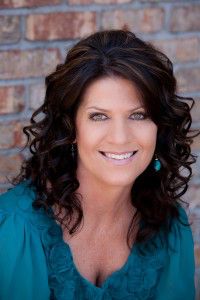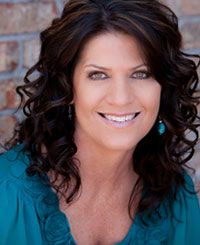Caregiver Forgetfulness or Something To Worry About
Caregiver Forgetfulness or Something To Worry About
By Becky Feola NABBW’s Associate for Assisted Living and Caregiving For many people, simply reaching that 50th birthday milestone brings a whole new range of challenges such as unexplainable aches and pains, weight gain, high cholesterol and high blood pressure. However, one of the most disturbing is the forgetfulness that increases with age and demands. And then, if you add the role of caregiver to your resume, chances are it’s happening with more and more frequency. Trying to juggle and balance caring for your spouse, children, work, the house and yourself while also providing care for an aging or ill loved one can leave you overwhelmed and distracted.
For many people, simply reaching that 50th birthday milestone brings a whole new range of challenges such as unexplainable aches and pains, weight gain, high cholesterol and high blood pressure. However, one of the most disturbing is the forgetfulness that increases with age and demands. And then, if you add the role of caregiver to your resume, chances are it’s happening with more and more frequency. Trying to juggle and balance caring for your spouse, children, work, the house and yourself while also providing care for an aging or ill loved one can leave you overwhelmed and distracted.
With all the news of the increase in cases of dementia and more particularly, Alzheimer’s disease, you might be wondering if you have an early onset of such a devastating condition. It’s perfectly normal to worry, but it’s more likely that you are overloaded with responsibilities and your brain can’t keep up with all it’s asked to do. There are major differences between what is normal forgetfulness and the memory loss associated with dementia. According to the Alzheimer’s Association, if you are experiencing the following signs, your forgetfulness is most likely normal.
- We all forget names, dates or words. But, if it comes back to you later, then it’s normal forgetfulness.
- If you’ve forgotten that name, face or experience and you remember it after someone or something reminds you, it’s normal.
- If you are able to remember information through the use of notes, calendars and other reminders, then it’s normal.
- If you’ve forgotten information more than once, but it becomes easier and easier to retrieve that information every time you are reminded, it’s normal.
- Forgetting things when you are juggling too many challenges at once is normal.
- Realizing you are forgetful, but still being able to respond in your usual manner to address the challenge suggests normal forgetfulness.
- Being forgetful, but still consistently performing your activities of daily living such as bathing, dressing and eating, indicates normal forgetfulness.
If you are still worried that you have early onset dementia, here are ten warning signs that the Alzheimer’s Association suggests you would want to discuss with your doctor:
- Forgetting things more often and not being able to remember them at all later on.
- Difficulty remembering that you performed familiar tasks such as making dinner or taking a shower.
- Problems with language such as forgetting simple words or substituting inappropriate words.
- Disorientation to time and place such as not knowing where you are or how you got there and not knowing how to get back home.
- Losing the ability to make sound decisions and poor or decreased judgment such as reckless driving or spending all your money on frivolous items.
- Losing the ability of abstract thinking such as not being able to balance your checkbook because you don’t recognize the numbers or know what to do with them.
- Repeatedly misplacing items such as keys or cell phone.
- Rapid mood swings such as confusion, suspicion or withdrawal for no apparent reason.
- Marked changes in personality such as losing inhibitions or becoming more over familiar or outgoing that before.
- Losing interest in activities that were previously enjoyed or needing cues and prompting to become involved in normal activities.
 While there are very real reasons to worry about the development of dementia, caregivers face extraordinary demands and need to remember that a normal level of forgetfulness should be expected. Hopefully, you’ll take this information in and remember to relax!
While there are very real reasons to worry about the development of dementia, caregivers face extraordinary demands and need to remember that a normal level of forgetfulness should be expected. Hopefully, you’ll take this information in and remember to relax!
Becky Feola is the founder of Assisted Living Advantage, located in Phoenix, Arizona. She started her company in 2009, after working for four years as director of the non-profit NJF Center for Caregivers, Inc. Becky has personally been through the process of relocating a loved one to assisted living – more than once. Her passion for assisting others in locating care facilities for their loved ones comes after eleven years of providing care for her ailing husband and then realizing it was time for assisted living. After her husband was diagnosed with Huntington’s disease, she became his primary caregiver. She immersed herself in research, learning all that she could concerning the disease, the legalities of being an informal caregiver and guardian, the insurance companies, social services, and the legal system.
She has personally seen how difficult it can be to find the perfect care facility without the assistance of someone who understands issues such as licensing, levels of care, and appropriate pricing. Becky views herself as a “matchmaker” and is determined to create the perfect match where your loved one will move one time only to a new home where they will thrive as much as possible during their remainder years. She puts her understanding, vast knowledge of the Phoenix area and her exacting standards to work for her families, with excellent results.



Leave a Reply
You must be logged in to post a comment.